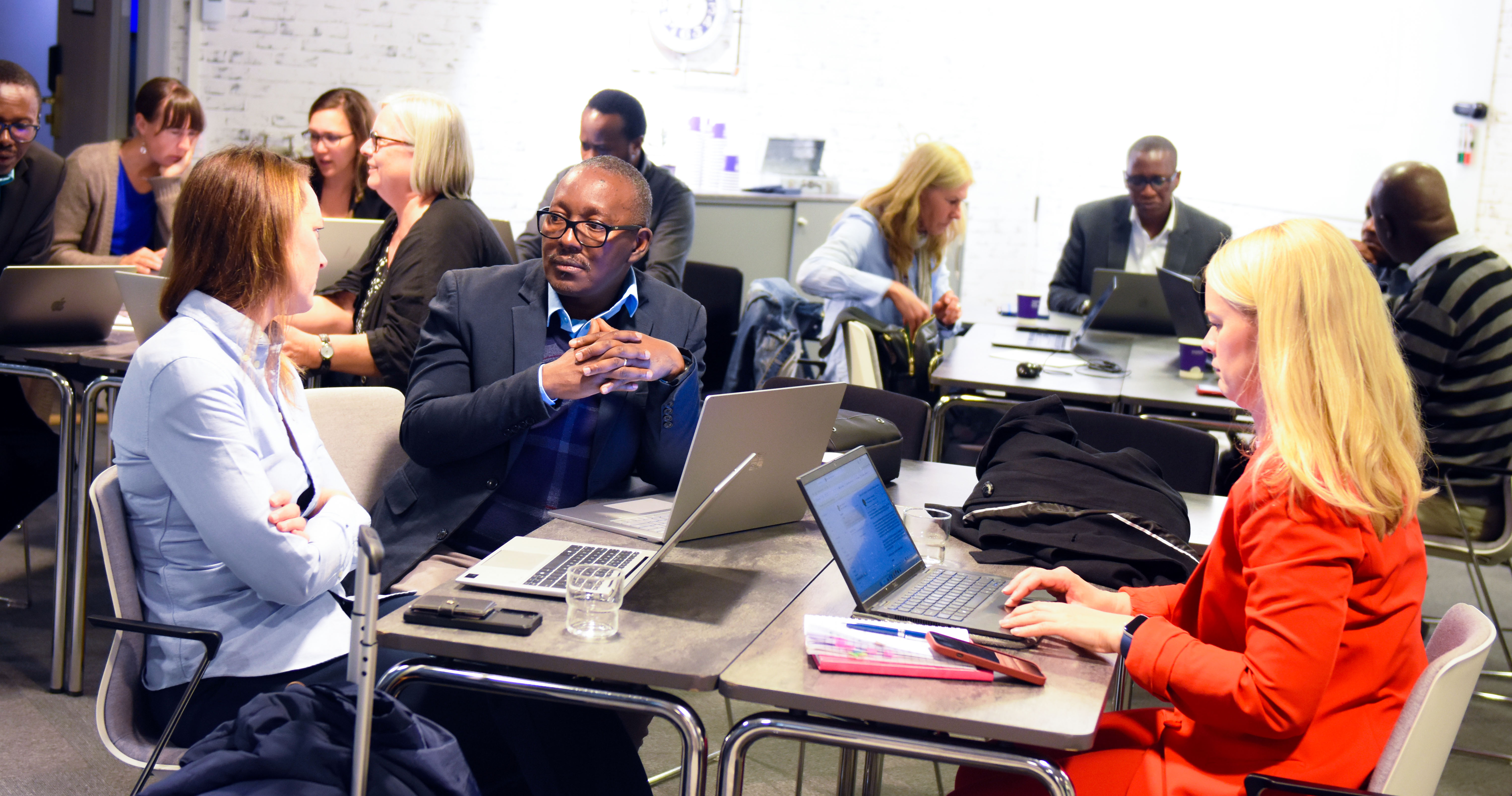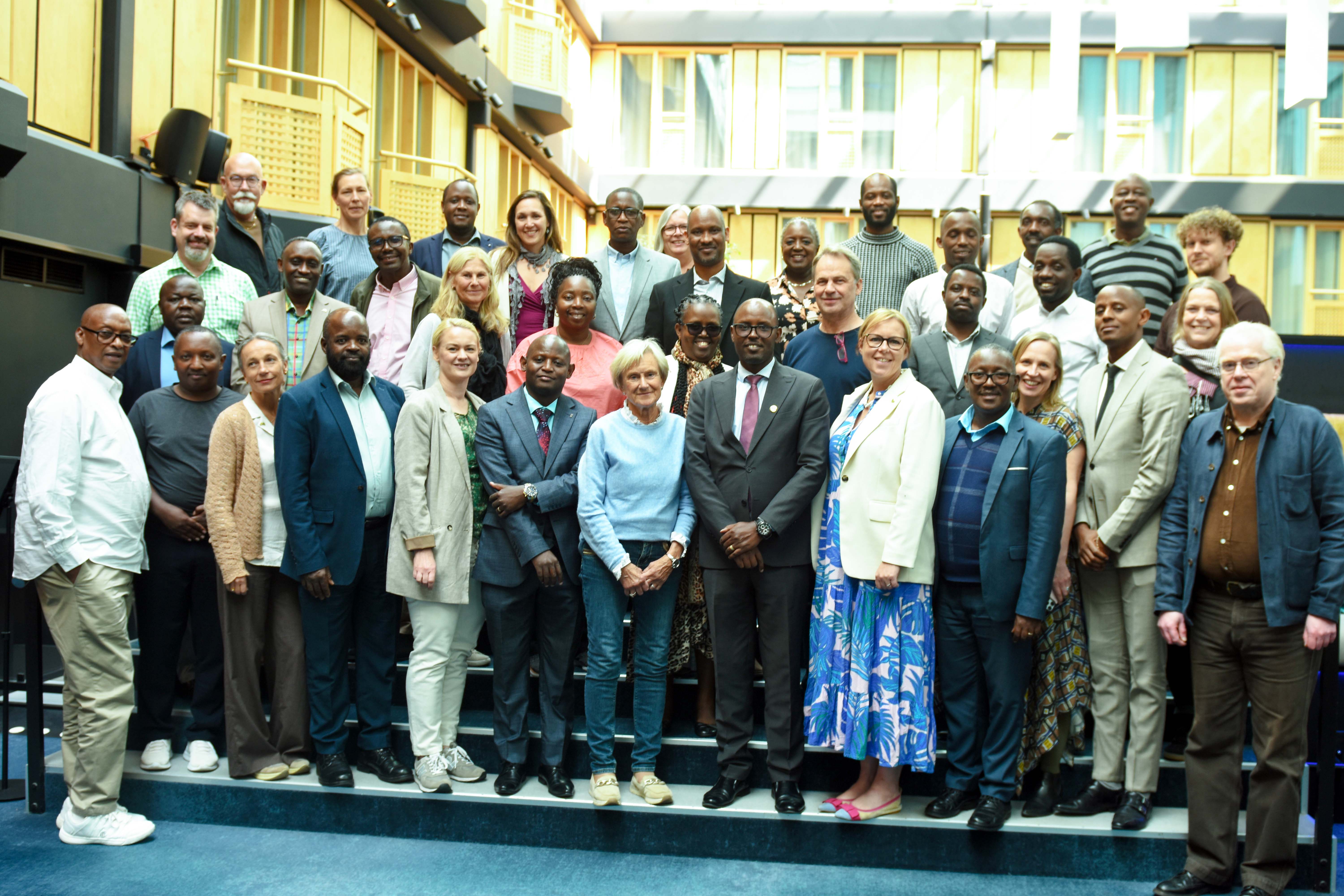The University of Rwanda research team under the UR-Sweden Program joined their counterparts from 14 Swedish universities for the Annual Dialogue Meeting held at the University of Gothenburg, Sweden. Discussions focused on the ongoing bilateral research program, particularly the progress of PhD training both in Rwanda and Sweden, and the collaborative efforts in research and innovation.
Speaking at the event, the University Vice Chancellor, Prof. Didas Kayihura, expressed his satisfaction with the program’s contributions to the Government of Rwanda. He emphasized the importance of continued documentation of the program’s interventions, which have had a significant impact not only on individuals but also on the institution and the country at large.

A section of participants during the meeting
“We are proud of the impact that graduates are making within UR and in other institutions across Rwanda. Many graduates are now holding strategic positions,” said Prof. Kayihura.
Martina Fors Mohlin, Head of Development Cooperation at the Swedish Embassy in Rwanda, praised the program for producing a critical mass of skilled individuals who are driving positive change at the University of Rwanda and beyond. She stressed the need to apply research findings to ensure they meaningfully contribute to Rwanda’s efforts to reduce poverty and improve lives.
According to Program Coordinator Prof. Etienne Ruvebana the program has served as a source of hope and transformation through its educational journey. He highlighted the importance of moving beyond numbers to evaluate how research and training have led to meaningful change in the lives of individuals and communities.
In her remarks, Katarina Westman, Senior Research Advisor at the Swedish Embassy in Rwanda, noted that the Annual Dialogue Meeting aims, among other objectives, to develop mechanisms that support PhD students in making steady progress and receiving the guidance they need to complete their theses on time. She also reiterated the importance of communicating research findings to ensure they create tangible impact within communities.

From top left -clockwise : Prof Kayihura Didas ; UR Vice Chancellor, Martina Fors Mohlin, Head of Development Cooperation at the Swedish Embassy in Rwanda, Katarina Westman, Senior Research Advisor at the Swedish Embassy in Rwanda and Prof Etienne Ruvebana, the Program Coordinator
As part of the meeting, the Rwandan delegation visited the Tracks and Fuse program at Chalmers University of Technology ; a makerspace and lab where education, research, industry, and the community converge to test and implement ideas. The hub has a strong collaboration with UR’s UNIPOD, with benefits including benchmarking as well as staff mobility. The hub mainly attracts industries in the fields of mechanical engineering and product development.

Participants group photo
Currently, UR-Sweden Program boasts 18 subprograms, including 15 research training programs and 3 research support programs. The initiative has supported the development of five PhD programs at the university. To date, the program has produced 99 PhD graduates, postdoctoral researchers, and over 100 master’s graduates. At present, 60 students are pursuing PhD studies ; 35 at Swedish universities and 25 at the University of Rwanda.